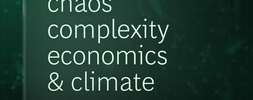Wealth is a stock, not a flow. The country with the highest flow of GDP in a particular year is not necessarily the richest country. The richest country has the highest capital stock, whether endowed or accumulated, implying a higher potential for future income and consumption. This should be obvious, yet concepts of wealth are often poorly understood or ignored. Many countries do not maintain adequate wealth accounts; those that do would admit that a great deal of work on national accounts remains to be completed. This is remarkable: investors would not accept corporate balance sheets of a quality akin to those of many countries. However, with progress on wealth accounting, including the accounting of natural wealth, this situation may be set to change, enabling the rate at which nations are becoming richer or poorer per capita to undergo popular examination. A focus on wealth, and changes in wealth, would lead to attention on investment in important assets and to sharper attention on sustainability. This paper, and this issue of the Review as a whole, provides an examination of wealth, its definition, constituent parts, geographical distribution, and change over time, and provides policy guidance on accounting and management. We also explore the degree to which successful wealth management may even make us happier.
Cameron Hepburn, Economics of Sustainability programme Director at INET Oxford, presented a seminar on Wealth at the second ‘Government Economic Service at 50’ Seminar Day at HM Treasury on Friday 18th July. The day consisted of 4 sessions attended by over 200 government economists on the topics of Wealth, Tax Structure and Economic Growth, Pro Bono Economics and finally Science, Innovation and the Economy.
Below is the outline for Cameron’s seminar and for more information on the GES please click here.
Cameron's slides are available here.
Latest News
All News
Only 57 producers are responsible for 80% of all fossil fuel and cement CO2 emissions since 2016 – new report

Sensitive interventions to catalyse China’s net-zero transition in energy and transport

Banking regulation ‘tilting the scales’ away from renewables

Why has productivity slowed down?

Oxford Answers: Playing to win, human behaviour and climate action

Chaos, complexity, economics & climate: Conversation with J. Doyne Farmer

Research Impact: How to save the world $12 trillion

Making Sense of Chaos: A Better Economics for a Better World

Experts call for new economic modelling to meet energy transition ambition

Prediction on Stock Market Inefficiencies Confirmed by Data

Why we need a green land value tax and how to design it

INET Oxford researcher recognised for cutting edge work on guaranteed job scheme
